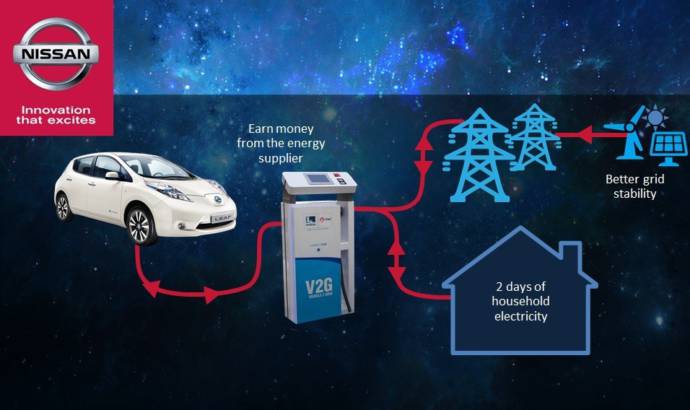Nissan is curently the producer of the most popular electric vehicle in the world: the Leaf. SO it is quite logic to see the Japanese manufacturer contributing to the the 21st UN Conference on Climate Change (COP21) in Paris.
Trying to benefit from this special occasion, Nissan has announced the development of an innovative Vehicle to Grid system which will allow drivers to operate as individual ‘energy hubs’ with the ability to store, use or return electricity to the grid.
Nissan will commence Smart Grid trials in partnership with multinational energy manufacturer and distributor, Enel. As part of the partnership, Nissan and Enel promise to introduce the revolutionary technology to the European market, to extend the use of ‘second life’ electric vehicles batteries for static applications, to design and to evaluate potential affordable energy and mobility pack offers.
Vehicle-to-Grid allows customers to take control of the type of energy they consume. This way avoiding peak tariffs and generating additional household income during peak times.
Using a special two-way charger and energy management system developed by Nissan in partnership with Enel, Leaf owners can connect to charge at low-demand, cheap tariff periods, with an option to then use the electricity stored in the vehicle’s battery at home when costs are higher, or even feed back to the grid to generate additional household income.



